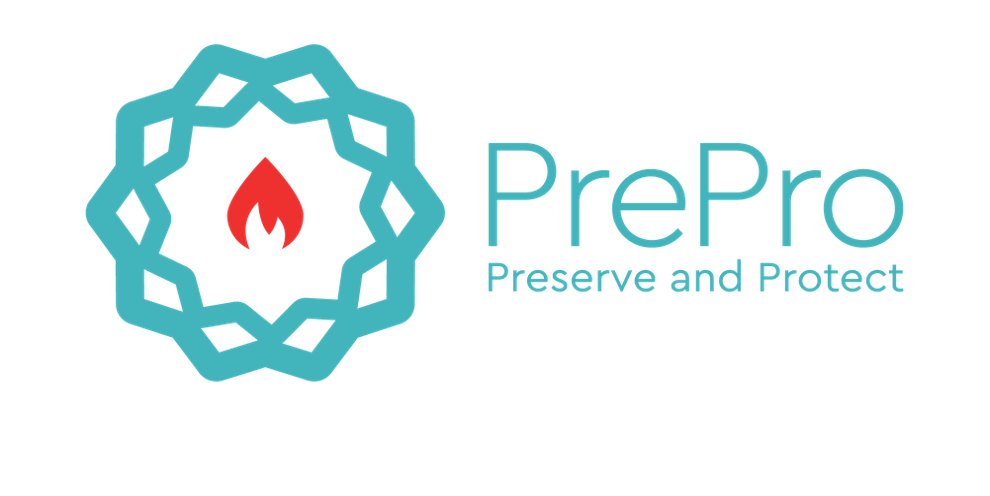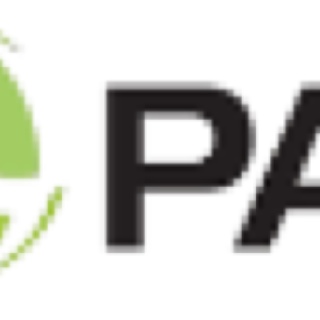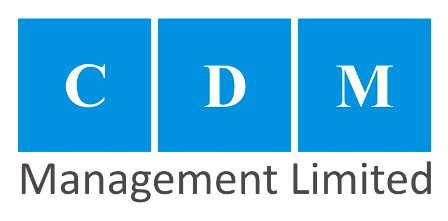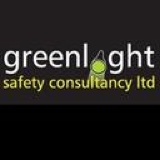Information
-
Demolition Contractor
-
Audit Title
-
Conducted on
-
Prepared by
-
Location
-
Client / Site
-
Site Manager/Supervisor
Introduction
-
This inspection/audit has been undertaken by Safedem management. The purpose of the inspection/audit is to ensure that Safedem sites comply with the Health and Safety at Work Act 1974 and any relevant subordinate legislation, including but not restricted to, the Management of Health and Safety at Work Regulations 1999, BS 6187: 2011, the Construction (Design & Management) Regulations 2015, the Control of Asbestos Regulations 2012, Lifting Operations & Lifting Equipment Regulations 1998, Provision & Use of Work Equipment Regulations 1998, and the Working at Heights Regulations 2005. The report aims to identify any areas where Safedem needs to improve to meet the requirements of all relevant health and safety regulations and industry best practice procedures.
Site general information
-
Demolition or refurbishment
- Demolition
- Refurbishment/soft strip
- Partial demolition
-
Demolition structure type
- General Demolition
- Tower Block Deconstruction
- Stressed Concrete Structure
- Reinforced Concrete Structure
- Chimney Demolition
- Bridge Demolition
- Industrial Dismantling
- Shoring & Facade Retention
- Asbestos Removal
- Site Clearance & Excavation
- Internal soft strip
-
How many floors does the structure have?
- 1
- 2
- 3
- 4
- 5
- more than 5
-
Location type
- City centre
- Industrial
- Commercial
- Residential
- Rural
- Urban
- Sub-urban
-
Are there any subcontractors (other contractors) on site
-
What type?
- Asbestos
- Scaffolder
- Soft strip team
- Salvage team
- Ground works
- Archaeological
- Temporary works
-
Are the works coordinated adequately?
-
How are the works coordinated?
Site entrance
-
Site entrance
Principal Contractor under CDM
-
Principal contractor under CDM
Temporary Works
-
Is there a temporary works register in place?
-
Name of the temporary works coordinator:
-
Name of the temporary works supervisor:
1.0 Welfare/site set up
-
1.0 Welfare/site set up: Observations
-
1.0 Additional photographs.
-
1.1 Welfare unit/compound
-
1.2 Toilets and Showers
-
1.3 Canteen/Mess Room
-
1.4 Drying Room and storage for clothing/PPE/change of clothes
-
1.5 Office and meeting room
-
1.6 Pedestrian segregation
-
Pedestrian segregation.
-
1.7 Preparation of hot food and drinks
-
1.8 Safety signage displayed
-
Safety signage.
2.0 PPE/RPE
-
2.0 PPE/RPE: Observations.
-
2.0 Additional photographs.
-
2.1 Hats, Boots and Vests
-
2.2 Hearing protection
-
2.3 Masks/RPE (is RPE being used on site?)
-
2.3.1 Are all persons face-fitted to the mask?
-
2.4 Gloves (Are they the correct code for the task?)
-
2.5 Eye protection correct to task (EN166 A,B,F Rated)
-
2.6 Harness's, lanyards and safety lines being utilised on site?
-
2.6.1 Are harnesses the correct type and used correctly?
3. Fire
-
3.0 Fire: Additional photographs.
-
3.1 Fire Plan
-
Fire plan
-
3.2 Extinguishers
-
3.3 LPG storage & use
-
3.4 Emergency Lighting
-
3.5 Emergency muster point
-
Emergency muster point
-
3.0 Fire: Observations.
4.0 Services
-
4.1 Disconnection Certificates in Possession
-
4.2 Service Drawings on Site
-
4.0 Additional photographs.
-
4.0 Services: Observations.
5.0 Hand tools
-
5.1 Are PAT tests in date?
-
5.2 Are 110v power tools being used?
-
5.3 Extension leads
-
5.4 Are whip checks in place where required?
-
5.6 Are damaged tools being used?
-
5.0 Additional photographs.
-
5.0 Hand tools: Observations
6.0 Site Plant
-
6.0 Additional photographs
-
6.1 Are daily plant inspections being recorded?
-
6.2 Is a safe working area/exclusion zone in place and in compliance with section 13 of BS 6187: 2011?
-
Safe working area/exclusion zone
-
6.3 Trained operators
-
6.3.1 Do all operators hold the appropriate demolition specific CPCS?
-
6.4 Correct application of plant
-
6.5 Lifting operations
-
6.6 Lifting Equipment Register
-
6.7 Are MEWPS being used?
-
6.7.1 Are the correct harness types being used?
-
6.7.2 Is a rescue plan in place?
-
6.8 Cranes
-
6.9 Are site dumpers/vehicles being used?
-
6.0 Site Plant: Observations
7.0 Work Area
-
7.2 Access/Egress
-
7.3 Storage of Material & Equipment
-
7.4 Leading edges/openings/falls from height
-
7.5 Lighting (is internal lighting being used?)
-
7.5.1 Is it suitable and sufficient for the tasks being undertaken?
-
Lighting
-
7.0 Work Area: Observations.
-
7.0 Additional photographs.
8.0 Scaffold & access equipment
-
8.1 Handover/Sign off
-
8.2 Double Handrail
-
8.3 Integrity/ties/fixings
-
8.4 Netting & monoflex
-
8.5 Ladders or Stairs
-
8.6 Inspections
-
Scafftag
-
8.0 Scaffold & access equipment: Observations.
-
8.0 Additional photographs
9. Waste & recycling
-
9.1 SWMP
-
9.2 Site regestration
-
9.3 Recycling
-
9.4 Are the arising demolition materials being reused where possible?
-
9.5 are hazardous materials being disposed of in line with the regulations?
-
9.6 Are site boundaries secured to minimise the possibility of fly-tipping?
-
9.7 Are all documentation for off-site waste disposal adhered?
-
9.0 Waste & recycling: Observations.
-
9.0 Additional photographs
10.0 Task sheet
-
10.1 RAMS
-
10.1.1 Are the RAMS suitable and sufficient for the task?
-
10.2 Inductions
-
10.2.1 Are inductions recorded?
-
Induction records.
-
10.3 Tool Box Talks
-
10.3.1 Are the tool-box-taks recorded?
-
10.3.1 Why are tool-box-talks not given on site?
-
10.4 Are road closure/footpath permits required?
-
Permits.
-
10.5 Are permits to work required for specific tasks?
-
10.5.1 Are these in place?
-
10.6 Daily Paperwork/diary/checklist
-
10.0 Task sheets: Observations.
-
10.0 Additional photographs.
11.0 Documents
-
11.1 F10
-
F10
-
11.2 Demolition warrant/section 81
-
Demolition warrant/section 81
-
11.3 HSE poster
-
HSE poster
-
11.4 Policies Statements
-
Policies Statements
-
11.5 Traffic Management Plan
-
Site plan
-
11.6 Insurance certificates
-
Insurance certificate
-
11.7 Training records
-
11.8 Information posters
-
Information posters.
-
11.0 Documents: Observations.
-
11.0 Additional photographs.
12.0 First aid
-
12.1 First aider cover
-
12.1.1 Name of the first aider:
-
12.1.2 Name of the appointed person(s):
-
12.2 First aid box (is this sufficient for the amount of on-site personnel and the tasks being undertaken?)
-
12.3 Accident book
-
12.0 First aid: Observations.
-
12.0 Additional photographs.
13.0 Subcontractor Works
-
13.1 Are sub-contractors on-site?
-
13.1.1 Are the sub-contractors removing asbestos?
-
13.1.1.1 Correct PPE for tasks
-
13.1.1.2 Qualified Operatives
-
13.1.1.3 Safe System of Work
14.0 Asbestos
-
14.1 Are the works licensed?
-
14.1.2 Are suitable decontamination procedures in place?
-
14.1.3 Are all operatives adequately trained in NNLW asbestos removal techniques to UKATA//NDTG standards?
-
14.1.4 Are operatives wearing the correct PPE/RPE for the work in hand as identified in the RAMs?
-
14.1.5 Are operatives wearing the correct PPE/RPE for the work in hand as identified in the RAMs
-
14.1.6 Has the RPE issued been correctly face fitted?
-
14.1.7 Is the working area suitable demarcated and asbestos warning signs displayed in prominent positions?
-
14.1.8 Are operatives handling ACMs in Accordance with RAMs?
-
14.1.9 Is the waste skip secure and lockable?
-
14.1.10 Are waste disposal documents being recorded correctly?
-
14.1.1 Is an appropriate POW in place?
-
14.1.1 Is an appropriate POW in place?
-
14.1.2 Are suitable decontamination procedures in place?
-
14.1.3 Are all operatives adequately trained in asbestos removal techniques to UKATA standards?
-
14.1.4 Has the RPE issued been correctly face fitted?
-
14.1.5 Is the working area suitable demarcated and asbestos warning signs displayed in prominent positions?
-
14.1.6 Is the enclosure adequate and tested?
-
14.1.7 Are operatives handling ACMs in accordance with RAMs?
-
14.1.8 Is the waste skip secure and lockable?
-
14.1.9 Are waste disposal documents being recorded correctly?
-
14.0 Asbestos:Observations.
-
14.0 Additional photographs.
-
13.0 Sub-contractor works: Observations.
-
13.0 Additional photographs.
15.0 Asbestos
-
15.0 Asbestos:Observations.
-
15.0 Additional photographs.
-
15.1 Is asbestos being removed by the workforce?
-
15.1.1 Are the works NNLW?
-
15.1.1.1 NNLW Notification Number:
-
15.1.2 Are all operatives adequately trained in NNLW asbestos removal techniques to UKATA//NDTG standards?
-
15.1.3 Are operatives wearing the correct PPE/RPE for the work in hand as identified in the RAMs?
-
15.1.4 Has the RPE issued been correctly face fitted?
-
15.1.5 Is the working area suitable demarcated and asbestos warning signs displayed in prominent positions?
-
15.1.6 Are operatives handling ACMs in Accordance with RAMs?
-
15.1.7 Is the waste skip secure and lockable?
-
15.1.8 Are waste disposal documents being recorded correctly?
-
15.1.9 Are suitable decontamination procedures in place?
-
15.1.10 Is a suitable plan of work in place and being followed?
16.0 Environmental
-
16.2 Is there surface water?
-
16.2.1 What does it contain, how much is there and where does it go?
-
16.3 Has the most efficient use of the water the site requires been considered?
-
16.4 Are the impacts of operations on the local wildlife and plant life fully understood and planned accordingly?
-
16.5 Are there any conservation designations denoting a protected area or endangered species attached to the site?
-
16.6 Are there any invasive species on the site that may be spread as a result of the operations on the site?
-
16.7 Are all environmentally sensitive areas of the site marked and are all staff aware of their significance?
-
16.8 Is nuisance dust a factor?
-
What measures are in place to reduce the impacts?
-
16.9 Is nuisance noise a factor?
-
What measures are in place to reduce the impacts?
-
16.10 Is nuisance fumes a factor?
-
What measures are in place to reduce the impacts?
-
16.11 Are plant lay-down areas and fuel stores located to reduce spillages and possible pollution of soils or watercourses?
-
16.12 Are all tanks, equipment and drums on appropriate bunds/drip trays/plant nappies?
-
16.13 Are all measures to control spills and leaks such as spill kits available and at hand?
-
16.0 Environmental: Observations
-
16.0 Additional photographs.
-
16.1 Is the site at risk of flooding?
17.0 Comments / Workforce Feedback
18.0 Advice
19.0 Actions
Signatures
-
Auditors signature
-
Site manager/supervisor signature
-
Site manager/supervisor photograph














